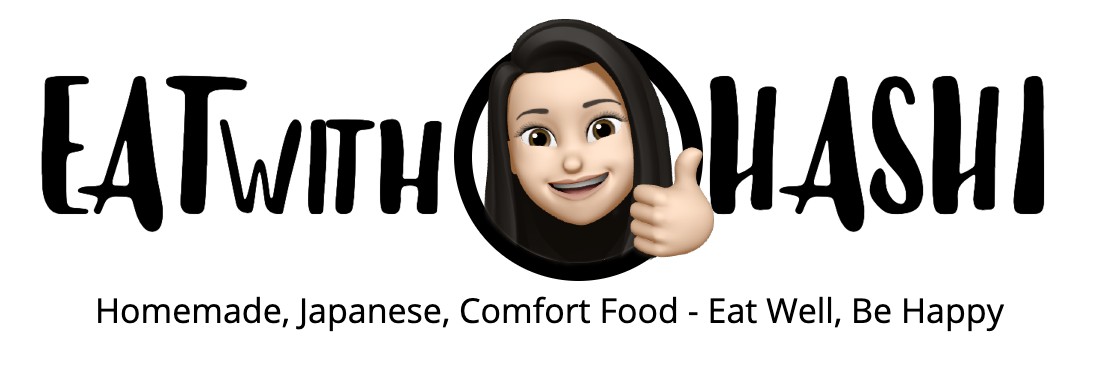Home / All Posts / Food Talk / The Japanese Magic Word for a Healthy Diet, まごわやさしい (Grandkids are Kind)
The Japanese Magic Word for a Healthy Diet, まごわやさしい (Grandkids are Kind)

Do you have a Mnemonic for your cooking? We do in Japan. It’s まごわやさしい, which is pronounced MAGOWA YASASHII. まご (pronounced mago) means “grandkids” and やさしい (pronounced yasashii) means “kind”, so the Mnemonic means “grandkids are kind”. Isn’t it a bit funny?
The Mnemonic is a combination of the acronyms of traditional Japanese ingredients. It is a reminder to help you to have a healthy diet by evenly incorporating 7 kinds of ingredients.
ま (pronounced ma) is an acronym of 豆 (pronounced mame) and it means “beans”. It represents foods, such as green peas, red beans, black beans, fried tofu, etc. Beans are rich in high-quality proteins and minerals. Rather than raw soybeans, fermented soybeans such as Natto, Tofu, and Miso are better.
ご (pronounced go) is an acronym of ごま (pronounced goma) and it means “sesame”. It represents foods, such as sesame, almonds, chestnuts, peanuts, walnuts, chestnuts, ginkgo nuts, pine nuts, etc. Sesame and nuts are high in protein, minerals, and fats, and in particular, sesame is known to have antioxidant properties.
わ (pronounced wa) is an acronym of わかめ (pronounced wakame) and it means “Wakame seaweed”. It represents foods, such as Wakame seaweed, Hijiki seaweed, Nori seaweed, kelp, Mozuku seaweed, etc. Seaweeds are high in minerals such as calcium. It goes well with vinegar and oil, and you can get nutrients efficiently by eating them together.
や (pronounced ya) is an acronym of 野菜 (pronounced yasai) and it means “vegetable”. Nutrients contained in vegetables such as green-yellow vegetables, light-colored vegetables, and root vegetables differ, but almost all contain vitamins and minerals. You can eat a lot of vegetables when heated because they lose their bulk, but be aware that some vegetables lose their nutrients when heated. Vegetable juice is an easy way to consume vegetables, but they may also be processed to reduce their nutritional value or contain added sugar. It’s a good idea to consume vegetables from salads, raw vegetables, and homemade smoothies.
さ (pronounced sa) is an acronym of 魚 (sakana) and it means “fish”. Examples include Salmon, tuna, octopus, shrimp, oysters, sardines, clams, mackerel, horse mackerel, freshwater clams, etc. Fish are a great source of proteins. Among them, bluefish are expected to reduce cholesterol in the blood and are known to have a fatigue recovery effect.
し (pronounced shi) is an acronym of しいたけ (pronounced Shiitake) and it means “Shiitake mushroom”. It represents foods such as Shiitake mushrooms, Maitake mushrooms, Enoki mushrooms, Nameko mushrooms, etc. Among the vitamins, mushrooms are especially rich in vitamin D and are expected to be effective in repairing calcium in bones. It also contains a lot of other minerals and dietary fiber.
い (pronounced ee) is an acronym of いも (pronounced ee-mo) and it means “Potato”. It represents foods such as potatoes, sweet potatoes, taro, yam, konjac, etc. Potatoes are rich in carbohydrates, and also rich in vitamins and dietary fiber, which can be expected to have the effect of improving the intestinal environment.
Do you now remember those 7 ingredients? Don’t worry, it’s ok if there are the days that you missed some of them and couldn’t have all those 7 kinds of ingredients in your dishes. It’s just a Mnemonic to kindly remind you, encourage you, and to give you an idea of how to enjoy healthier and more nutritional meals. But when you are planning meals or cooking and this Mnemonic pops into your mind, you could get an idea like “oh, I can add sesame seeds in this dish” or “oh, maybe it’ll taste better if I add Shimeji mushroom to this dish”, or something like that. Sounds good?
I hope this Mnemonic comes in handy and helps you to have a healthier mealtime! 🙂
Eat Well, Be Happy!
If you enjoyed reading this, you may like these…
-
 Takoyaki Recipe: Authentic Japanese Octopus Balls Recipe
A must try Takoyaki Recipe if you are a lover of Japanese street food! Takoyaki is a Japanese street food that originated in Osaka city. However, due to its popularity amongst…
Takoyaki Recipe: Authentic Japanese Octopus Balls Recipe
A must try Takoyaki Recipe if you are a lover of Japanese street food! Takoyaki is a Japanese street food that originated in Osaka city. However, due to its popularity amongst…
-
 Spicy Miso Mayonnaise Dipping Sauce Recipe – Super Addictive!
This is a Japanese spicy miso mayonnaise dipping sauce. It’s highly addictive and tastes amazing on just about any kind of vegetables. Enjoy it as a very tasty afternoon snack…
Spicy Miso Mayonnaise Dipping Sauce Recipe – Super Addictive!
This is a Japanese spicy miso mayonnaise dipping sauce. It’s highly addictive and tastes amazing on just about any kind of vegetables. Enjoy it as a very tasty afternoon snack…
-
 The Japanese Magic Word for a Healthy Diet, まごわやさしい (Grandkids are Kind)
Do you have a Mnemonic for your cooking? We do in Japan. It’s まごわやさしい, which is pronounced MAGOWA YASASHII. まご (pronounced mago) means “grandkids” and やさしい (pronounced yasashi…
The Japanese Magic Word for a Healthy Diet, まごわやさしい (Grandkids are Kind)
Do you have a Mnemonic for your cooking? We do in Japan. It’s まごわやさしい, which is pronounced MAGOWA YASASHII. まご (pronounced mago) means “grandkids” and やさしい (pronounced yasashi…




Rate & Comment...